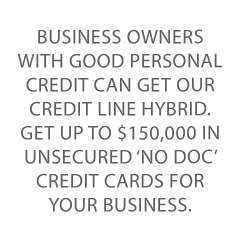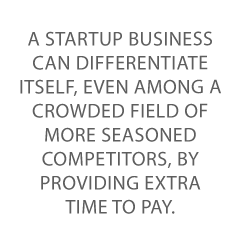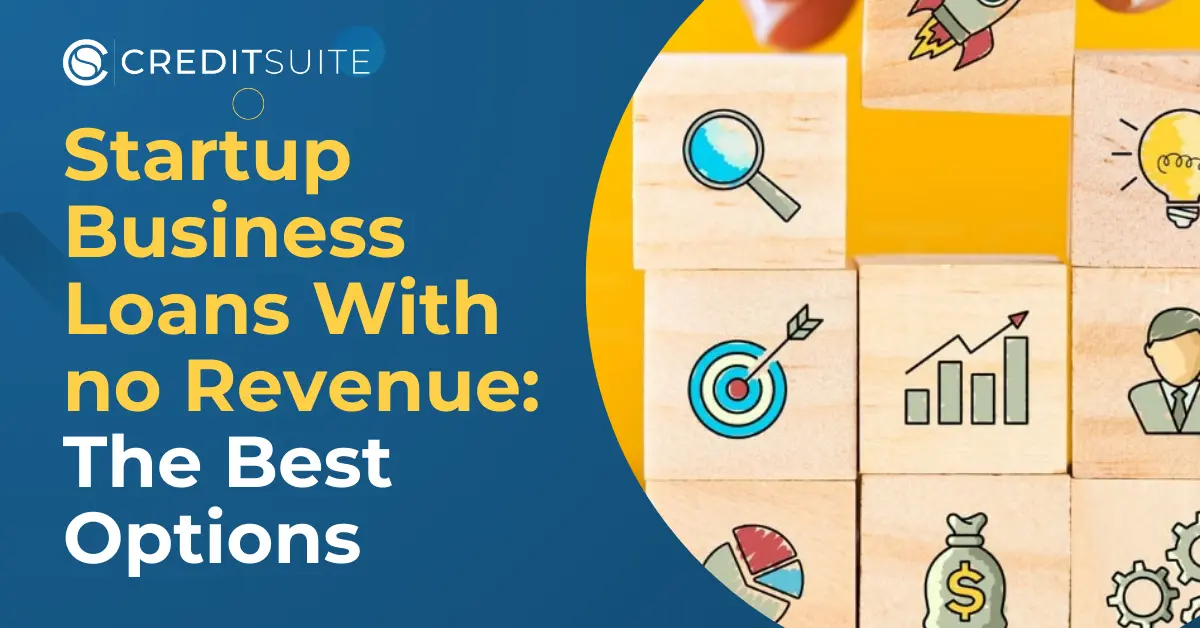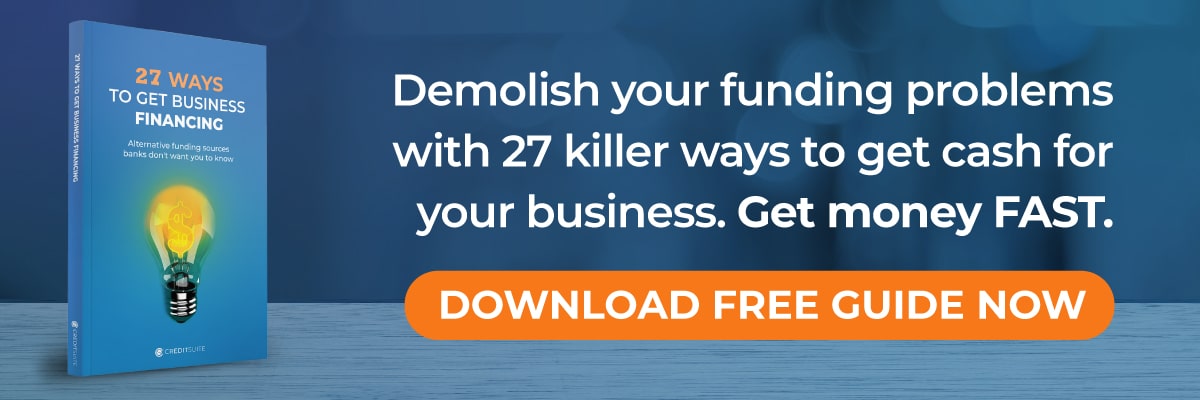Are you looking for startup business loans with no revenue requirement? It’s not impossible to get a startup loan for a small business even if you don’t have any revenue yet. But it is tricky, and a small business owner will have to address the question of risk head on.
Because a lender wants to get their money back, a brand new business with absolutely no revenue will not inspire confidence. You’ll have to win over a lender.
Can You Get A Startup Business Loan With No Revenue?
It’s not easy. You will undoubtedly have to reset your expectations.
The Small Business Administration offers small business loans, and the easiest ones to qualify for are microloans. While the SBA does not specifically demand revenue in order to qualify for a microloan, a lender might. It doesn’t work quite the same way as an SBA 7a loan.
Also, a lender will want a personal guarantee from you. That means a hard pull on your personal credit, which can affect your credit history. If you have bad credit, you may not want to take such a hit to your credit score.
The loan amount of such an SBA loan will not exceed $50,000. Also, they may wish to see a business plan.
Another business funding possibility is a loan through a community development financial institution via a community development fund.
Yet another is a secured loan of some sort. Valuable collateral is one way to assure funding providers. This is because they know that they can always seize your collateral if you fail to pay back your business loans.
Another type of funding is using a business credit card. A business credit card is a powerful funding tool, particularly because it can help you get business loans in the future. But only if it reports to the CRAs, so you can build a credit history.
Alternative Loan Options For Startups With No Revenue
Option #1 – The Credit Suite Credit Line Hybrid
 Business owners with good personal credit can get our Credit Line Hybrid. Get up to $150,000 in unsecured ‘no doc’ credit cards for your business.
Business owners with good personal credit can get our Credit Line Hybrid. Get up to $150,000 in unsecured ‘no doc’ credit cards for your business.
No collateral, income, or assets are required. Enjoy 0% interest for 6 – 18 months. Get 24 hour pre-approval with no upfront application fee.
Small business owners will need to have a personal credit score of 700 or better, and no more than 4 inquiries per bureau in the last 12 months.
You need to have at least two open credit cards with two or more years of history and at least a $5,000 limit or better. This must be a primary card. Also, you cannot have any bankruptcies, open (unpaid) collections, liens, or judgments.
Small business owners who do not have such stellar credit can work with a credit partner in order to qualify.
This program is particularly helpful to startups because you can build business credit with it.
Note: while you can get business credit cards with the Credit Line Hybrid, you may get at least one personal credit card which will report to personal credit bureaus.
Option #2 – Business Credit Cards
Beyond the Credit Line Hybrid, a startup business can also build credit with starter vendors. While many business credit providers do not report positive credit experiences to the bureaus, a certain small fraction of them do.
We make it our business to know which vendors report to the credit bureaus, saving small business owners time and money.
A startup which is not yet generating revenue will still need supplies. Startup business owners can use business credit cards to purchase computers, office supplies, gasoline, and more. Buy on credit, pay the provider back on time, and eventually credit limits will start to rise.
The more a startup business owner can build business credit, the more likely a loan provider will agree to lend capital.
Business credit provides assurances to a business loan provider (including a traditional lender like a bank or a credit union) that the startup business will pay back its financing debts on time.
Option #3 – Merchant Cash Advance
For a startup business with a merchant account that already accepts credit cards, an MCA can be a fast financing option (like fast business loans). The main requirement for qualifying is to have unpaid credit card invoices held with companies known to pay their bills on time.
A startup can get a large fraction of the unpaid invoices quickly, and can give good terms to its customers as a result. It’s the best of both worlds, being able to offer, say, net 60 terms but not have to wait 60 days for payment.
One downside is that MCA providers (like alternative lender Fora Financial) tend to want to see a certain amount of monthly or annual revenue.
But if the owner’s personal credit is very good, that may help to open the door to an MCA, and you can lean on your cash flow. Since MCAs are often the choice of poor credit risks, a provider may welcome someone with a good FICO score.
It’s worth a shot—but keep in mind that MCAs come with high interest rates and short repayment terms. But with this funding, you are treating your credit sales almost like collateral, more or less.
NOTE: you will need to be bringing in some revenue, so this isn’t truly an option for a business with absolutely zero revenue.
Option #4 – Venture Capital
Is your startup business cutting edge, with a killer idea and an excellent, well-researched business plan? If so, then VC firms may be interested.
VCs are always on the lookout for the next big thing. But this would not be a loan, and it certainly would not be a gift. Rather, you are selling some of the equity in your business.
This will give the VC firm a say in how you run your startup business. And if they purchase a majority share, then the decisions are mainly going to be theirs. The direction and the vision can end up being (mainly) theirs as well.
If you started your business because you wanted to be your own boss, then this may not sit well with you at all. But if you feel as if you’ve gotten in over your head, you may welcome a more seasoned hand on the wheel.
Option #5 – Invoice Financing
Much as is the case with a cash advance from a merchant, this financing option involves your business hanging onto unpaid invoices. But in this case, they’re not through credit card sales, although this kind of financing still leans on cash flow.
In order to become a viable going concern, a small business is going to have to attract customers. And in this day and age, given how much we are all scrutinized online (and all the places where a business can be rated), it literally pays to treat customers extremely well.
One such way to give your customers a break is to offer them generous net terms.
 A startup business can differentiate itself, even among a crowded field of more seasoned competitors, by providing extra time to pay. But the one problem is that this same startup business isn’t getting such great terms from its own creditors.
A startup business can differentiate itself, even among a crowded field of more seasoned competitors, by providing extra time to pay. But the one problem is that this same startup business isn’t getting such great terms from its own creditors.
As a result, the startup business doesn’t have good cash flow. But with invoice financing, it can leverage the fact that unpaid invoices are worth money. Getting a substantial cash advance via invoice financing makes a longer net terms period a lot more tolerable.
With this financing, you are essentially treating your unpaid invoices like collateral, hence this is an easier kind of funding to get than an unsecured loan, and your credit scores don’t really matter.
Option #6 – An Equipment Loan
With this type of small business financing, a business leverages the value of equipment they are looking to purchase or lease. Much like with a car loan, the equipment itself serves as collateral.
Business lenders should feel more comfortable lending because equipment financing isn’t an unsecured business loan.
Bad credit tends to not be an issue with equipment financing (although there will likely be some sort of credit check), as this startup business loan is based on the value of the equipment at issue. This is often the case with collateral, anyway.
This type of financing is generally a term loan for your small business. When it doesn’t come from the SBA (where you would need to provide a business plan to get business loans), the loan term tends to be one to five years.
A small business can even get a business line of credit for equipment, versus a small business loan.
An equipment financing lender will take amortization into consideration when deciding whether you should get this type of funding, and how much.
Should You Get a Business Loan With No Revenue?
Any form of funding comes with risk, but the very act of starting and owning a business is, perhaps, the biggest risk of all. But many businesses fail due to a lack of funding. Small business loans are a necessity. But you need to think creatively when you have no revenue.
Collateral and/or a good consumer credit score go a long way toward getting approved for a startup business loan. Funding providers want to know they’ll be paid back somehow. Collateral they can seize offers them an assurance. So does a good credit score.
Bad credit creates headaches for funding providers. Just like they would hold back on providing a personal loan, they will likely also hold back on approving a business loan. Or, you could get a business loan. But the terms would be unfavorable and the interest rate would be high.
It is possible to work with a credit partner, but as the economy worsens, funding providers are becoming more strict about this. Collateral, though, is still a good bet for securing a business loan, as unsecured business loans are always harder to get.
If you can avoid it, though, try not to provide collateral from your personal belongings. It’s better if it’s from your company’s own stash of, say, inventory. But if your choices are limited, do what you feel will help you the most.
And no matter what, consider what it means if your business has no revenue. Is it just new and undiscovered? Or is it failing? The answers to these questions will help you determine if a business loan is a good idea, or if it’s time to walk away.
Takeaways
Startup business loans with no revenue are out there, but can be hard to get. And, let’s face it, the best business loans are the ones that you can get!
A lack of revenue can lower the odds of approval, so be certain to assure funding providers with positives such as a good personal credit and valuable collateral for a secured business loan.
Why not contact us today, to learn more about how we can help open up financing opportunities to you, by establishing a strong Fundability Foundation™ and building business credit.

